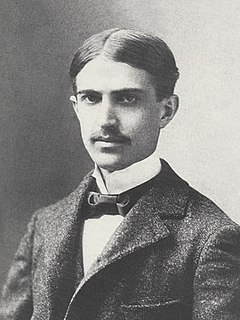A Quote by Antoine de Saint-Exupery
The machine does not isolate man from the great problems of nature but plunges him more deeply into them.
Related Quotes
What is a Poet? He is a man speaking to men: a man, it is true, endued with more lively sensibility, more enthusiasm and tenderness, who has a greater knowledge of human nature, and a more comprehensive soul, than are supposed to be common among mankind; a man pleased with his own passions and volitions, and who rejoices more than other men in the spirit of life that is in him; delighting to contemplate similar volitions and passions as manifested in the goings-on of the universe, and habitually impelled to create them where he does not find them.
Were I to solve problems for others they would remain stagnant; they would never grow. It would be a great injustice to them. My approach is to help with cause rather than effect. When I help others, it is by instilling within them the inspiration to work out problems by themselves. If you feed a man a meal, you only feed him for a day-but if you teach a man to grow food, you feed him for a lifetime.
'Fire' does not matter, 'earth' and 'air' and 'water' do not matter. 'I' do not matter. No word matters. But man forgets reality and remembers words. The more words he remembers, the cleverer do his fellows esteem him. He looks upon the great transformations of the world, but he does not see them as they were seen when man looked upon reality for the first time. Their names come to his lips and he smiles as he tastes them, thinking he knows them in the naming.
A man who gives way to his passions is like a man who is shot by an enemy, catches the arrow in his hands, and then plunges it into his own heart. A man who is resisting his passions is like a man who is shot by an enemy, and although the arrow hits him, it does not seriously wound him because he is wearing a breastplate. But the man who is uprooting his passions is like a man who is shot by an enemy, but who strikes the arrow and shatters it or turns it back into his enemies heart.
Scientific discovery is a private event, and the delight that accompanies it, or the despair of finding it illusory, does not travel. One scientist may get great satisfaction from another's work and admire it deeply; it may give him great intellectual pleasure; but it gives him no sense of participation in the discovery, it does not carry him away, and his appreciation of it does not depend on his being carried away. If it were otherwise the inspirational origin of scientific discovery would never have been in doubt.
The sublime can only be found in the great subjects. Poetry, history and philosophy all have the same object, and a very great object-Man and Nature. Philosophy describes and depicts Nature. Poetry paints and embellishes it. It also paints men, it aggrandizes them, it exaggerates them, it creates heroes and gods. History only depicts man, and paints him such as he is.
To the average man, life presents itself, not as material malleable to his hand, but as a series of problems...which he has to solve...And he is distressed to find that the more means he can dispose of-such as machine-power, rapid transport, and general civilized amenities, the more his problems grow in hardness and complexity....Perhaps the first thing he can learn form the artists is that the only way of 'mastering' one's material is to abandon the whole conception of mastery and to co-operate with it in love: whosoever will be a lord of life, let him be its servant.






































